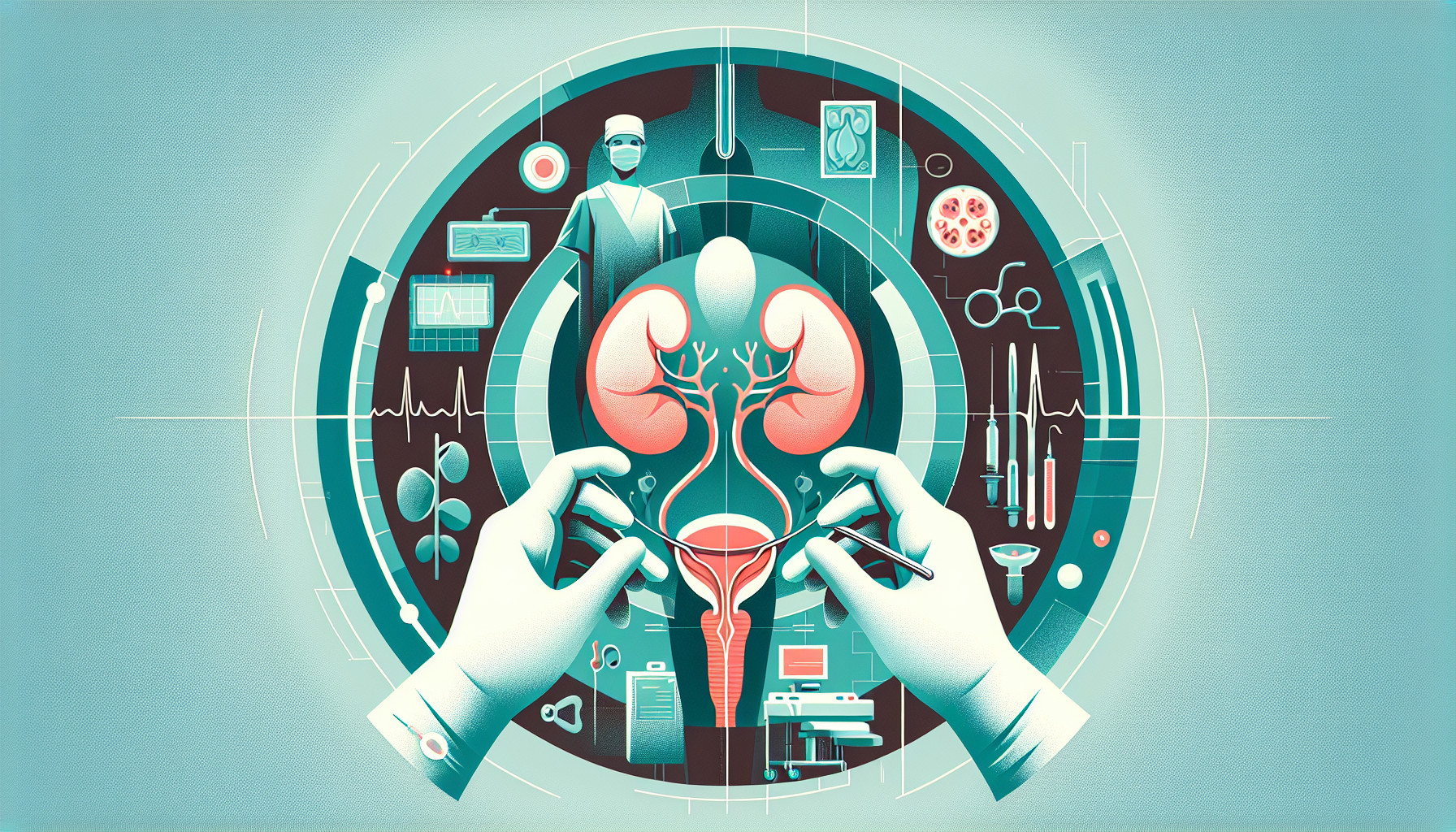Our Summary
This research paper discusses a new way to address neurogenic bladder (a condition where a person can’t control their bladder due to nerve damage) in patients with spinal cord injury, spina bifida, cerebral palsy, and multiple sclerosis. The paper suggests categorizing treatment methods based on whether the patient’s bladder has trouble storing or emptying urine. It discusses various surgical procedures, such as creating a new path for urine to exit the body, increasing the bladder’s size, and surgeries on the bladder outlet. The paper also talks about how to handle common complications from these surgeries. It emphasizes the importance of considering the patient’s social support, body shape, and limb function when deciding on the best surgical option.
FAQs
- What are some common complications faced during bladder surgery that the article reviews?
- How does the article suggest surgical management is categorized for neurogenic bladder patients?
- Why is a holistic approach, considering factors like social support, body habitus, and extremity function, necessary for appropriate surgical selection according to the article?
Doctor’s Tip
One helpful tip a doctor might tell a patient about bladder surgery is to carefully follow post-operative instructions to prevent complications and ensure successful recovery. This may include guidelines for incision care, activity restrictions, medication management, and follow-up appointments. It is important to communicate any concerns or changes in symptoms to your healthcare provider promptly. Additionally, maintaining a healthy lifestyle and staying well-hydrated can support overall bladder health and aid in the healing process.
Suitable For
Patients with neurogenic bladder, including those with spinal cord injury, spina bifida, cerebral palsy, and multiple sclerosis, are typically recommended bladder surgery when they experience failure to store urine or failure to empty the bladder effectively. Surgical management options include catheterizable channels, bladder augmentation, and bladder outlet procedures. It is important to consider the patient’s social support, body habitus, and extremity function when determining the appropriateness of surgery. Additionally, complications related to neurogenic bladder should be carefully considered and managed. A holistic approach that takes into account the patient’s overall health and functional status is recommended for appropriate surgical selection.
Timeline
Before bladder surgery:
- Patients may experience symptoms such as urinary incontinence, urinary retention, frequent urinary tract infections, and bladder pain.
- Patients will undergo a thorough evaluation by a urologist or other healthcare provider, which may include urodynamic testing, imaging studies, and medical history review.
- Treatment options such as medication, catheterization, and behavioral therapy may be attempted before considering surgery.
- If surgery is deemed necessary, the patient will undergo pre-operative testing and counseling to prepare for the procedure.
After bladder surgery:
- Patients may experience post-operative pain, swelling, and discomfort, which can be managed with pain medication and rest.
- Patients will be monitored closely for complications such as infection, bleeding, and urinary leakage.
- Patients will undergo a period of rehabilitation and recovery, which may include physical therapy and bladder training.
- Follow-up appointments will be scheduled to monitor the success of the surgery and address any ongoing issues or concerns.
- Patients may need to make lifestyle changes, such as modifying their diet or fluid intake, to optimize bladder function post-surgery.
What to Ask Your Doctor
What type of bladder surgery is recommended for my specific condition (e.g. spinal cord injury, spina bifida, cerebral palsy, multiple sclerosis)?
What are the potential risks and benefits of the recommended bladder surgery?
What is the expected recovery time and post-operative care for the bladder surgery?
How will the bladder surgery affect my ability to store and empty urine effectively?
Will I need to use catheterization after the bladder surgery, and if so, how frequently?
What are the potential complications or side effects of the bladder surgery, and how are they typically managed?
How will the bladder surgery impact my daily activities and quality of life?
Are there any alternative treatments or non-surgical options for managing my neurogenic bladder?
How often will I need follow-up appointments after the bladder surgery, and what should I expect during these visits?
Can you provide information or resources for social support and additional assistance for managing a neurogenic bladder condition post-surgery?
Reference
Authors: DeWitt-Foy ME, Elliott SP. Journal: Urol Clin North Am. 2022 Aug;49(3):519-532. doi: 10.1016/j.ucl.2022.04.010. Epub 2022 Jun 30. PMID: 35931441
